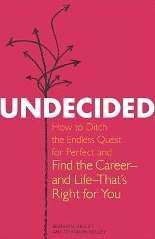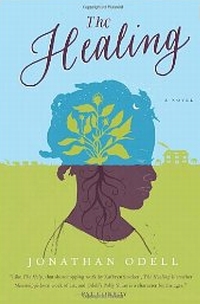Today started with an amazing sunrise. We were off for a bit of hiking. Great views both toward and away from the water.





 You may also like Duluth Day.
You may also like Duluth Day.
For a deeper dive – over 500 posts on life, mind, body & spirit
Today started with an amazing sunrise. We were off for a bit of hiking. Great views both toward and away from the water.





 You may also like Duluth Day.
You may also like Duluth Day.
 Part of my summer reading included a few books that looked promising from my local library’s “newly published” shelf. Undecided: How to Ditch the Endless Quest for Perfect and Find the Career – and Life – That’s Right for You by Barbara Kelley and Shannon Kelley (Seal Press: 2011) looked at the inability of millennium women to decide on a career. I thought it would be interesting to see what challenges and struggles face women of the next generation. The authors did a fair job of demonstrating the challenges and ambivalence facing young women who were raised to believe they could whatever they wanted to do. They used personal stories and some demographic statistics to make their point.
Part of my summer reading included a few books that looked promising from my local library’s “newly published” shelf. Undecided: How to Ditch the Endless Quest for Perfect and Find the Career – and Life – That’s Right for You by Barbara Kelley and Shannon Kelley (Seal Press: 2011) looked at the inability of millennium women to decide on a career. I thought it would be interesting to see what challenges and struggles face women of the next generation. The authors did a fair job of demonstrating the challenges and ambivalence facing young women who were raised to believe they could whatever they wanted to do. They used personal stories and some demographic statistics to make their point.
However, a large portion of the book explains the ongoing dilemma for women: how to work in jobs that pay less than men – so less money – while trying to raise a family. This is not a choice that men ever make, because as the authors spend time explaining, the business world assumes that men have a wife at home full time to take care of children and women will leave either to get married (if single) or to have children (if married), so pay them less for the same work (190-192). The fact neither assumption is any longer the case in today’s world is lost on corporate America. These are systemic issues that need to be addressed. The authors are clear that personalizing this issue will not solve the problem (182-183).
Further, they noted that in some countries, such as Sweden, these issues have been addresses systemically. Laws have been changed to require both men and women to take leave to care for infants or family members. The authors observed that this has narrowed the pay differential between men and women in Sweden significantly in just ten years (200-201).
But then these authors fall out of bed. Rather than provide ways that women can work to legislate similar laws in this country – they do exactly what they previously said will not work – they personalize this issue. Chapters thirteen and fourteen discuss how women should just turn inward, learn what they are really passionate about and all these problems will somehow be solved. They use the same individual stories from earlier in the book to demonstrate how it will work.
This is magical thinking at it’s worst (or best depending on your POV). Turning inward and learning more about ourselves can be helpful – but unfortunately it will not eliminate the inherent structural issues that women face – being paid less for the same work and society not valuing the work required to care for society’s children. This is the kind of thinking that must change. Unlike the authors hopeless suggestion to turn inward, women and men must see the ugly discrimination built into the system as it really is. Then it can be changed. Women must demand systemic change from men, and both can look to successful models (elements of Sweden for example) for ways to make things different.
So – I’m undecided about this book. It does help the reader see the dilemmas facing millennium women. But neither author understands the systemic changes necessary to solve the dilemma brought about by the discrimination of men against women.
This year, as most years, we are headed up to northern Minnesota and Lake Superior for a week of vacation. I will post a few pictures each day and you can see how our week unfolds.
We don’t normally make a plan, or if we do we change the plan as the day progresses. We tend to be pretty opportunistic and veer off the beaten path if something interesting presents itself. Come along with us.
We’ve arrived and here’s the view of Lake Superior from the cabin we’re renting for these next few days – right on the water.
This evening the sunset was dreamy –
 If you liked the story The Help, you’ll enjoy The Healing. It’s a great novel for summer reading from Jonathan Odell, a Minnesota author. Beautifully written, the reader is instantly transported into a plantation in the Deep South.
If you liked the story The Help, you’ll enjoy The Healing. It’s a great novel for summer reading from Jonathan Odell, a Minnesota author. Beautifully written, the reader is instantly transported into a plantation in the Deep South.
Rich in mood and atmosphere, The Healing is a warmhearted novel about the unbreakable bonds between three generations of female healers and their power to restore the body, the spirit, and the soul.
In Antebellum Mississippi, Granada Satterfield has the mixed fortune to be born on the same day that her plantation mistress’s daughter, Becky, dies of cholera. Believing that the newborn possesses some of her daughter’s spirit, the Mistress Amanda adopts Granada, dolling her up in Becky’s dresses and giving her a special place in the family despite her husband’s protests. But when The Master brings a woman named Polly Shine to help quell the debilitating plague that is sweeping through the slave quarters, Granada’s life changes. For Polly sees something in the young girl, a spark of “The Healing,” and a domestic battle of wills begins, one that will bring the two closer but that will ultimately lead to a great tragedy. And seventy-five years later, Granada, still living on the abandoned plantation long after slavery ended, must revive the buried memories before history repeats itself.
Inspirational and suspenseful, The Healing is the kind of historical fiction readers can’t put down—and can’t wait to recommend once they’ve finished.
“A remarkable rite-of-passage novel with an unforgettable character. . . . The Healing transcends any clichés of the genre with its captivating, at times almost lyrical, prose; its firm grasp of history; vivid scenes; and vital, fully realized people, particularly the slaves with their many shades of color and modes of survival.” The Associated Press
But in the end, one of the characters, wasn’t able to envision freedom. Caught in the culture (in the story it was a culture of the plantation life) creates blinders that prevent us from accepting the invitation for a new life when it is offered.
This story alerts us to the fact that merely changing the laws on slavery doesn’t create free people. In the same way enacting a law requiring affirmative action doesn’t eliminate descriminatory behavior – it just takes on more subtle forms.
Like the characters in the story, in our own lives we are often caught in the same way. We are invited, either by a new situation or by someone we know to embark on something new, to leave what we know. Because we can imagine something worse, but not something better, we refuse. We are too caught up in our own story – which we believe is true. It is our failure to imagine something better that holds us back – a failure of imagination. God exists, however, in our imagination – or God doesn’t exist at all. Our imagination is the only place God can exist because we can’t see, hear, feel or touch God.
God is not safe. Through our imagination, God is constantly inviting us to stretch, to become uncomfortable, to step out of our comfort zones. But we want so much to be comfortable, to have health insurance, to stay in a space that no longer serves our needs or our life. We are complacent and we want to stay that way. However, this is not living, this is not a life.
Next time you are asked to stretch – say “yes” to life, “yes” to God.
In our culture we view the world through the eyes of privilege – actually over privilege or unearned privilege. We often attribute our unearned privileges to “blessings from God” or to “luck.” Even scientists in our culture fail to see the effects of unearned privileges and attribute these benefits to luck. But it isn’t luck at all.
An article in Science Daily entitled Reward the Second Best, Ignore the Best is a great example of these blinders of privilege at work. The article reports that those who are most successful often are successful because of a combination of both luck and skill. It states,
Implications of this research
The lucky few should understand and appreciate the role that luck played in their extreme success, and with that understanding comes an obligation to those that have not. The lucky few may be more skilful than others eventually, but the way they gain their superior skill can be due to strong rich-get-richer dynamics combined with the good fortune of being successful initially.
This was interesting because the author used Bill Gates’ extreme success as an example of this phenomenon.
Yes, Bill Gates may be very talented, but his extreme success perhaps tells us more about how circumstances beyond his control created such an outlier. Stated differently, what is more exceptional in this case may not be Gates’s talent, but the circumstances he happens to be in.
For example, Gates’s upper class background enabled him to gain extra programming experience when less than 0.01% of his generation then had access to computers; his mother’s social connection with IBM’s chairman enabled him to gain a contract from the then leading PC company, generating a lock-in effect that was crucial for establishing the software empire. Of course, Gates’s talent and effort play important roles in the extreme success of Microsoft. But that’s not enough for creating such an outlier. Talent and effort are likely less important than the circumstances (e.g., network externalities generated by customers’ demand for software compatibility boosted Gates’s initial fortune enabled by his social background) in the sense that he could not have been so successful without the latter.
And yet, the author clearly demonstrates it was not, what the author described as, “lucky circumstances” that aided success. In the case of Bill Gates, the author explains that it was actually “Gates’s upper class background [that] enabled him to gain extra programming experience when less than 0.01% of his generation then had access to computers; his mother’s social connection with IBM’s chairman [that] enabled him to gain a contract from the then leading PC company, generating a lock-in effect that was crucial for establishing the software empire.” So inherited, unearned benefits and privileges of class created the circumstances contributing to Gates’ initial success – so not luck at all — but the unearned benefits of the privileged.
Our social and economic systems are specifically designed to benefit some at the expense of others. What would have been unusual is if Bill Gates hadn’t benefited from his inherited, unearned, upper class privileges.
While the premise of the article is worth noting – that we should consider more carefully the success of those rated “second best” – it should have noted that unearned privileges of class, not luck, gives a big leg up to those at the top.
As Americans we like to believe that we live in a classless society or that everyone has an equal opportunity for success. The reality is that we live in a highly stratified society of social class with an income disparity of countries like Uganda and the Ivory Coast.
We may pull ourselves up by our bootstraps, however our bootstraps came from somewhere. We didn’t create them, but they weren’t “luck” either. And our social and economic systems are designed so that some of us don’t get any bootstraps at all.
Our task in this world is to provide similar bootstraps to those with none so that everyone has a chance to use their gifts and live a fully human life. This requires learning how social and economic systems really work so we can make intelligent changes. We are all connected. We will not all be whole and healed until all are whole and healed.